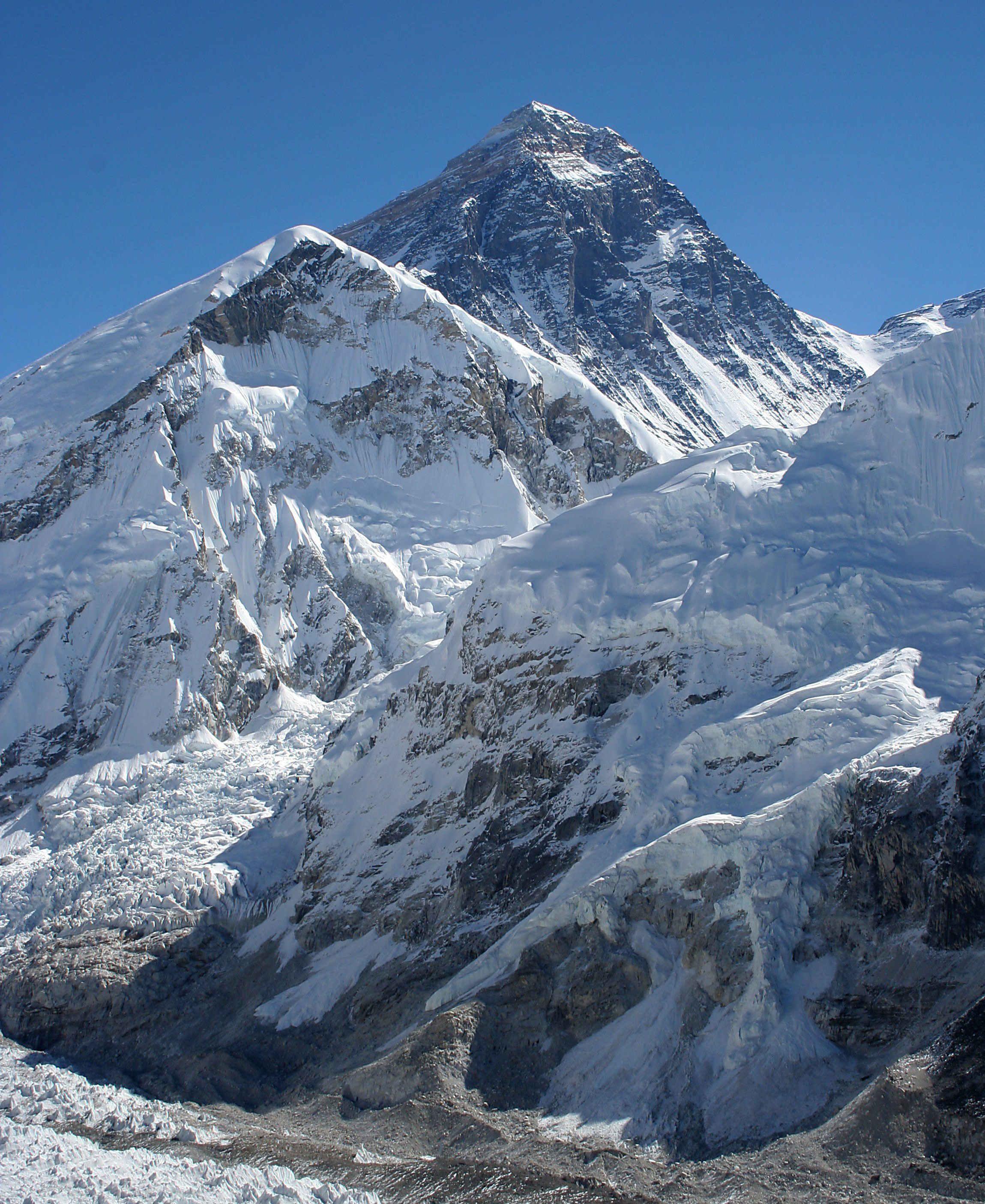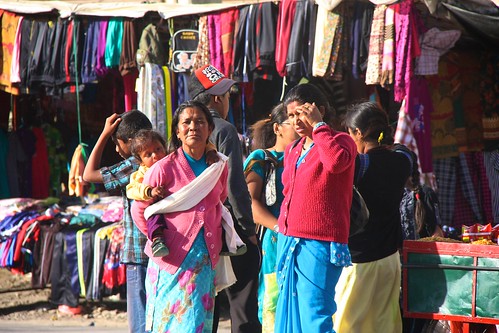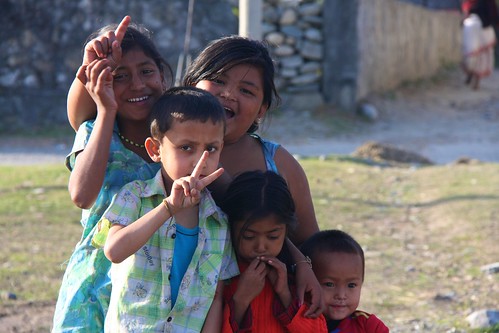Difference between revisions of "Adopting from Nepal"
| Line 24: | Line 24: | ||
| + | =Nepal Adoption Alert= | ||
| + | |||
| + | <span style="color:red">'''Notice:No U.S. Adoption Service Providers Currently Authorized to Facilitate Adoptions in Nepal (July 17, 2013)''' | ||
| + | |||
| + | The Nepali Ministry of Women and Child Social Welfare (MWCSW) informed the U.S. Embassy in Kathmandu that as of July 1, 2013, no U.S. adoption service providers (ASP) are authorized to facilitate adoptions in Nepal. According to the MWCSW, the authorization of all adoption service providers expired on December 31, 2012. The Ministry also informed the Department that no U.S. ASPs have submitted a new application or an application to renew their authorization for the two-year period beginning on January 1, 2013. | ||
| + | |||
| + | |||
| + | While Nepal's adoption regulations (the Terms and Conditions and Process for Granting Approval for Adoption of Nepali Children by an Alien, 2008) permit Nepali authorized ASPs and foreign missions to submit dossiers on behalf of prospective [[Adoptive Parents|adoptive parents]], the U.S. Embassy in Kathmandu cannot execute "cover letters" or submit [[dossier]] documents to the Ministry of Women and Child Social Welfare (MWCSW) on behalf of prospective [[Adoptive Parents|adoptive parents]] or otherwise serve as a [[De Facto|de facto]] ASP for prospective [[Adoptive Parents|adoptive parents]]. Therefore, it will not be possible for prospective [[Adoptive Parents|adoptive parents]] to file an application to [[adopt]] a Nepali child until a U.S. ASP applies for and receives authorization to facilitate adoptions in Nepal in 2013-2014. | ||
| + | |||
| + | |||
| + | Prospective [[Adoptive Parents|adoptive parents]] should also be aware that, on August 6, 2010, the U. S. Department of State and U.S. Citizenship and Immigration Services (USCIS) suspended processing of new adoption cases from Nepal involving children reported as abandoned because documents presented in support of the [[abandonment]] of these children in Nepal were unreliable. Cases involving [[relinquishment]] by known birth parent(s) were not affected by the suspension. | ||
| + | |||
| + | |||
| + | The U.S. Embassy in Kathmandu continues to encourage the Government of Nepal to work with the international community, including the Hague Permanent Bureau, to implement the Hague Adoption Convention and reform its adoption process to protect children and families. | ||
| + | |||
| + | |||
| + | We will continue to provide updates through adoption.state.gov as additional information is received. This link will also provide additional information and past adoption notices and alerts on the detailed concerns found in Nepal adoptions. | ||
| + | |||
| + | |||
| + | |||
| + | <span style="color:red">'''Notice: U.S. Department of State Continues to Recommend Against Adopting from Nepal (December 31, 2012)''' | ||
| + | |||
| + | While Nepal's adoption regulations, the Terms and Conditions and Process for Granting Approval for Adoption of Nepali Children by an Alien, 2008, permit Nepali authorized adoption service providers and foreign missions to submit dossiers on behalf of prospective [[Adoptive Parents|adoptive parents]], the U.S. Embassy in Kathmandu cannot execute "cover letters" or submit [[dossier]] documents to the Ministry of Women and Child Social Welfare (MWCSW) on behalf of prospective [[Adoptive Parents|adoptive parents]] or otherwise serve as a defacto [[Adoption Service Provider|adoption service provider]] for prospective [[Adoptive Parents|adoptive parents]]. | ||
| + | |||
| + | |||
| + | The Nepali Ministry of Women and Child Social Welfare (MWCSW) informed the U.S. Embassy in Kathmandu that as of December 2012, there are seven U.S. adoption service providers authorized to facilitate adoptions in Nepal at this time, and another ten U.S. adoption service providers whose authorization is pending payment of a $5000 fee to the Nepal Child Right Fund. According to the MWCSW, the authorization of all adoption service providers, including those currently authorized and those with pending authorization requests, expires on December 31, 2012. The MWCSW is currently soliciting new or renewed accreditation by international adoption service providers for dossiers submitted during a two-year period beginning on January 1, 2013. | ||
| + | |||
| + | |||
| + | Before embarking on an adoption in Nepal, prospective [[Adoptive Parents|adoptive parents]] are strongly urged to confirm with the MWCSW that their [[Adoption Service Provider|adoption service provider]] is authorized to facilitate adoptions in Nepal. Contact information for the MWCSW may be found on the [http://adoption.state.gov/country_information/country_specific_info.php?country-select=nepal Country Information Sheet] for Nepal. A copy of the MWCSW’s current list of Nepali authorized foreign adoption service providers may be obtained by writing to the U.S. Embassy at adoptionsnepal@state.gov. | ||
| + | |||
| + | |||
| + | By way of background, on August 6, 2010, the U. S. Department of State and U.S. Citizenship and Immigration Services (USCIS) suspended processing of new adoption cases from Nepal involving children claimed to have been found abandoned because documents presented in support of the [[abandonment]] of these children in Nepal were unreliable. Cases involving [[relinquishment]] by known birth parent(s) were not affected by the suspension. In December 2011, the Government of Nepal informed the U.S. Department of State that there may be a small number of children who will be found eligible for intercountry adoption by the Government of Nepal as [[relinquishment]] cases. The U.S. Department of State continues to strongly recommend that prospective [[Adoptive Parents|adoptive parents]] refrain from adopting children from Nepal due to grave concerns about the reliability of Nepal’s adoption [[system]] and credible reports that children have been stolen from birth parents, who did not intend to irrevocably relinquish [[Parental Rights|parental rights]] as required by INA 101(b)(1)(F). We also strongly urge adoption service providers not to accept new applications for adoption from Nepal. | ||
| + | |||
| + | |||
| + | The U.S. Embassy in Kathmandu continues to encourage the Government of Nepal to work with the international community, including the Hague Permanent Bureau, to implement the Hague Adoption Convention and reform its adoption process to protect children and families. | ||
| + | |||
| + | |||
| + | We will continue to keep you updated through adoption.state.gov as additional information is received. This link will also provide additional information and past adoption notices and alerts on the detailed concerns found in Nepal adoptions. Please refer to USCIS.gov for [http://www.uscis.gov/adoption/country-information/special-instructions-how-and-when-file-adoption-petitions-behalf-nepali-children Special Instructions for How and When to File Adoption Petitions on Behalf of Nepali Children]. | ||
=Hague Convention Information= | =Hague Convention Information= | ||
Revision as of 04:56, 6 April 2014
Contents
Nepal Adoption Alert
Notice:No U.S. Adoption Service Providers Currently Authorized to Facilitate Adoptions in Nepal (July 17, 2013)
The Nepali Ministry of Women and Child Social Welfare (MWCSW) informed the U.S. Embassy in Kathmandu that as of July 1, 2013, no U.S. adoption service providers (ASP) are authorized to facilitate adoptions in Nepal. According to the MWCSW, the authorization of all adoption service providers expired on December 31, 2012. The Ministry also informed the Department that no U.S. ASPs have submitted a new application or an application to renew their authorization for the two-year period beginning on January 1, 2013.
While Nepal's adoption regulations (the Terms and Conditions and Process for Granting Approval for Adoption of Nepali Children by an Alien, 2008) permit Nepali authorized ASPs and foreign missions to submit dossiers on behalf of prospective adoptive parents, the U.S. Embassy in Kathmandu cannot execute "cover letters" or submit dossier documents to the Ministry of Women and Child Social Welfare (MWCSW) on behalf of prospective adoptive parents or otherwise serve as a de facto ASP for prospective adoptive parents. Therefore, it will not be possible for prospective adoptive parents to file an application to adopt a Nepali child until a U.S. ASP applies for and receives authorization to facilitate adoptions in Nepal in 2013-2014.
Prospective adoptive parents should also be aware that, on August 6, 2010, the U. S. Department of State and U.S. Citizenship and Immigration Services (USCIS) suspended processing of new adoption cases from Nepal involving children reported as abandoned because documents presented in support of the abandonment of these children in Nepal were unreliable. Cases involving relinquishment by known birth parent(s) were not affected by the suspension.
The U.S. Embassy in Kathmandu continues to encourage the Government of Nepal to work with the international community, including the Hague Permanent Bureau, to implement the Hague Adoption Convention and reform its adoption process to protect children and families.
We will continue to provide updates through adoption.state.gov as additional information is received. This link will also provide additional information and past adoption notices and alerts on the detailed concerns found in Nepal adoptions.
Notice: U.S. Department of State Continues to Recommend Against Adopting from Nepal (December 31, 2012)
While Nepal's adoption regulations, the Terms and Conditions and Process for Granting Approval for Adoption of Nepali Children by an Alien, 2008, permit Nepali authorized adoption service providers and foreign missions to submit dossiers on behalf of prospective adoptive parents, the U.S. Embassy in Kathmandu cannot execute "cover letters" or submit dossier documents to the Ministry of Women and Child Social Welfare (MWCSW) on behalf of prospective adoptive parents or otherwise serve as a defacto adoption service provider for prospective adoptive parents.
The Nepali Ministry of Women and Child Social Welfare (MWCSW) informed the U.S. Embassy in Kathmandu that as of December 2012, there are seven U.S. adoption service providers authorized to facilitate adoptions in Nepal at this time, and another ten U.S. adoption service providers whose authorization is pending payment of a $5000 fee to the Nepal Child Right Fund. According to the MWCSW, the authorization of all adoption service providers, including those currently authorized and those with pending authorization requests, expires on December 31, 2012. The MWCSW is currently soliciting new or renewed accreditation by international adoption service providers for dossiers submitted during a two-year period beginning on January 1, 2013.
Before embarking on an adoption in Nepal, prospective adoptive parents are strongly urged to confirm with the MWCSW that their adoption service provider is authorized to facilitate adoptions in Nepal. Contact information for the MWCSW may be found on the Country Information Sheet for Nepal. A copy of the MWCSW’s current list of Nepali authorized foreign adoption service providers may be obtained by writing to the U.S. Embassy at adoptionsnepal@state.gov.
By way of background, on August 6, 2010, the U. S. Department of State and U.S. Citizenship and Immigration Services (USCIS) suspended processing of new adoption cases from Nepal involving children claimed to have been found abandoned because documents presented in support of the abandonment of these children in Nepal were unreliable. Cases involving relinquishment by known birth parent(s) were not affected by the suspension. In December 2011, the Government of Nepal informed the U.S. Department of State that there may be a small number of children who will be found eligible for intercountry adoption by the Government of Nepal as relinquishment cases. The U.S. Department of State continues to strongly recommend that prospective adoptive parents refrain from adopting children from Nepal due to grave concerns about the reliability of Nepal’s adoption system and credible reports that children have been stolen from birth parents, who did not intend to irrevocably relinquish parental rights as required by INA 101(b)(1)(F). We also strongly urge adoption service providers not to accept new applications for adoption from Nepal.
The U.S. Embassy in Kathmandu continues to encourage the Government of Nepal to work with the international community, including the Hague Permanent Bureau, to implement the Hague Adoption Convention and reform its adoption process to protect children and families.
We will continue to keep you updated through adoption.state.gov as additional information is received. This link will also provide additional information and past adoption notices and alerts on the detailed concerns found in Nepal adoptions. Please refer to USCIS.gov for Special Instructions for How and When to File Adoption Petitions on Behalf of Nepali Children.
Hague Convention Information
Who Can Adopt
Residency
Age of Adopting Parents
Marriage
Income
Other
Who Can Be Adopted
How to Adopt
Adoption Authority
The Process
Traveling Abroad
Applying for Your U.S. Passport
A valid U.S. passport is required to enter and leave Nepal. Only the U.S. Department of State has the authority to grant, issue, or verify U.S. passports. Getting or renewing a passport is easy. The Passport Application Wizard will help you determine which passport form you need, help you to complete the form online, estimate your payment, and generate the form for you to print-all in one place.
Obtaining Your Visa
In addition to a U.S. passport, you also need to obtain a visa. A visa is an official document issued by a foreign country that formally allows you to visit. Where required, visas are attached to your passport and allow you to enter a foreign nation. To find information about obtaining a visa for Nepal, see the Department of State's Country Specific Information.
Staying Safe on Your Trip
Before you travel, it's always a good practice to investigate the local conditions, laws, political landscape, and culture of the country. The State Department is a good place to start. The Department of State provides Country Specific Information for every country of the world about various issues, including the health conditions, crime, unusual currency or entry requirements, and any areas of instability.
Staying in Touch on Your Trip
When traveling during the adoption process, we encourage you to register your trip with the Department of State. Travel registration makes it possible to contact you if necessary. Whether there's a family emergency in the United States, or a crisis in Nepal, registration assists the U.S. Embassy or Consulate in reaching you. Registration is free and can be done online.
After Adoption
SOURCE
Intercountry Adoption, Bureau of Consular Affairs. U.S. Department of State Country Information










